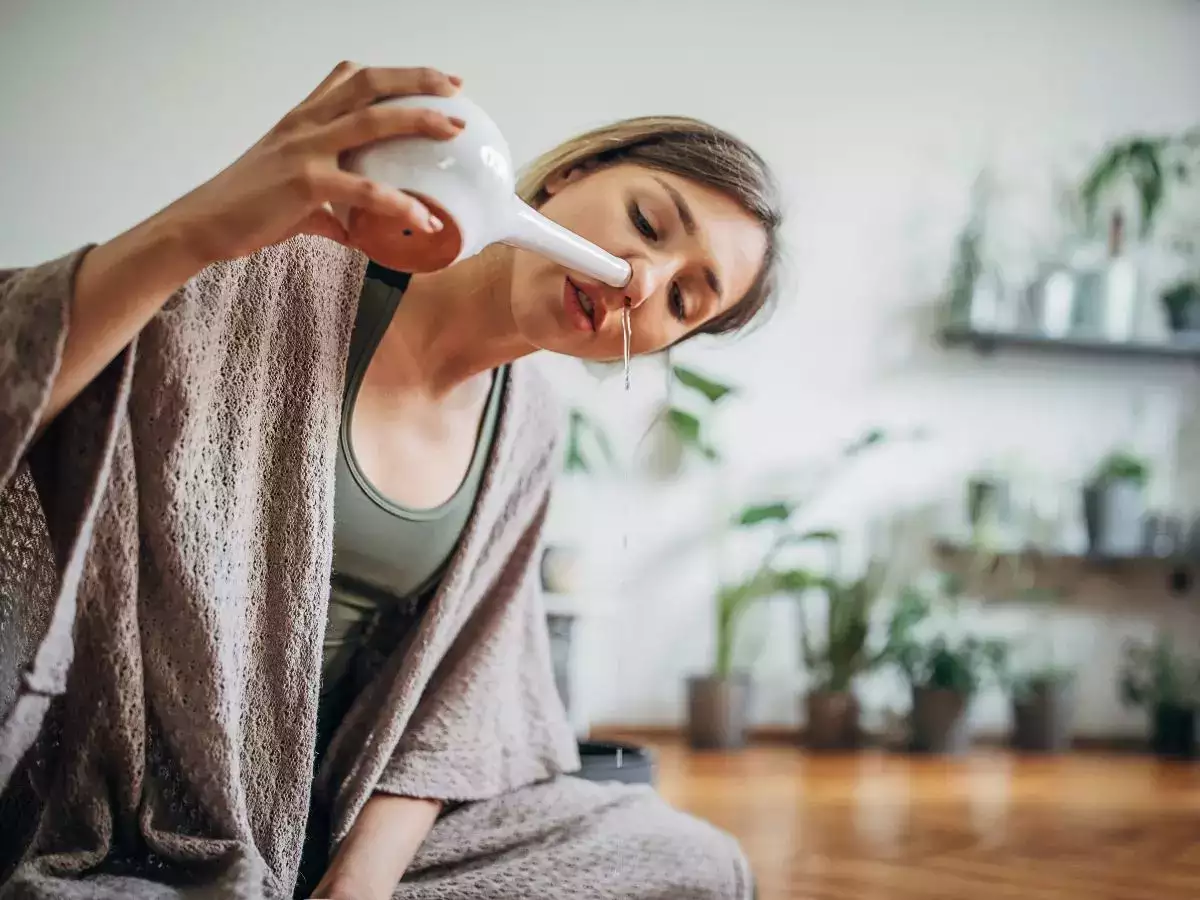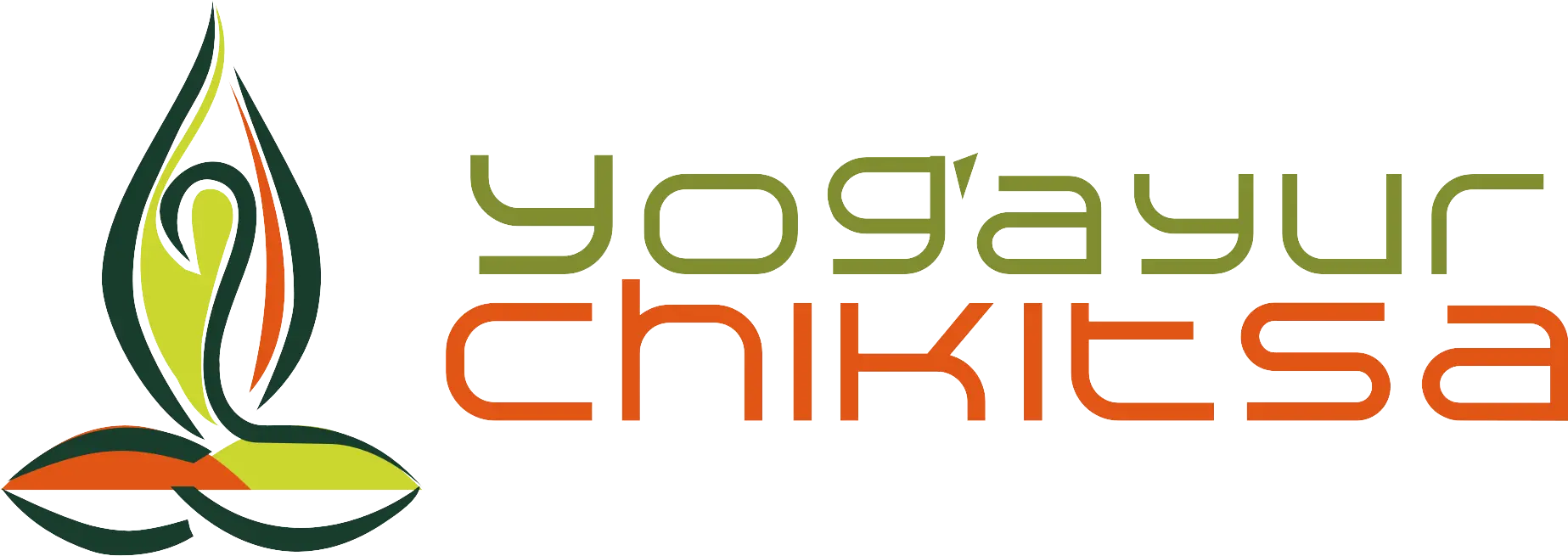Therapeutic uses of Jala Neti & Sutra neti

Summary:
- Jala neti and sutra neti are the yogic cleansing practices for the nasal passages with their potential therapeutic benefits and risk profiles.
- It is wise to go for jala neti first, due to ease of learning and very limited discomfort associated with the practice. With certain experience of jala neti, it is advisable to move ahead for the practice of sutra neti.
- Jala/sutra neti can potentially have a role in chronic conditions like rhinitis, sinusitis, and asthma.
Jala neti kriya is a yogic cleansing practice that involves using a neti pot and warm saline water to clean the nasal passages. The word “jala” means water, and “neti” means nasal cleansing. In the practice of jala neti, warm saline water is poured into one nostril while the head is tilted to the side, allowing the water to flow through the nasal passages and out the other nostril. This helps to flush out mucus, debris, and other impurities from the nasal passages and sinuses.
Sutra Neti is a yogic practice that involves cleaning the nasal passages using a thin rubber catheter or a waxed string. To perform sutra neti, a thin rubber catheter or waxed string is inserted through one nostril and passed out through the mouth. The catheter or string is then pulled out of the mouth and reinserted through the other nostril, and then pulled out through the mouth again. This process is done once for each nostril to clean the nasal passages of mucus, dirt, and other impurities.
It is advisable to go for jala neti before attempting sutra neti as the former is an easy practice and almost everyone is able to do it comfortably. Experience with sutra neti can be traumatic sometimes especially when not performed under supervision of an expert.
These practices of jala and sutra neti are believed to have several benefits for the body and mind. Some of the benefits of these kriya include:
Relieves nasal congestion: Neti helps to flush out mucus, allergens, and other impurities from the nasal passages, providing relief from nasal congestion and other respiratory problems. These are to be used for chronic infections of nose, throat, sinuses and not in acute infectious conditions.
Reduces the frequency and severity of sinus infections: Neti helps to reduce inflammation and prevent the buildup of mucus in the sinuses, which can reduce the risk of sinus infections.
Improves breathing: By cleaning the nasal passages and sinuses, neti helps to improve breathing and increase oxygen flow to the lungs. Considering this benefit, these can be used for patients with respiratory conditions like asthma and bronchitis.
Reduces snoring: Neti can help to reduce snoring by clearing the nasal passages and reducing congestion in the airways.
Reduces nasal allergy: Neti kriya can be useful for patients with nasal allergies and asthma. It works on the principle of stimulation and relaxation. If these two components of stimulation and relaxation are not followed properly, results may get compromised.
Improves sense of smell: Neti can help to clear the olfactory receptors, improving the sense of smell and taste.
Promotes overall respiratory health: By keeping the nasal passages clean, neti can promote overall respiratory health, reducing the risk of respiratory conditions like sinusitis, asthma, and bronchitis.
Neti is generally considered a safe (especially jala neti) and effective practice when performed correctly, but there are a few potential side effects and risks to be aware of:
Nasal irritation: Some people may experience nasal irritation or discomfort during or after jala neti, especially if the saline solution is too strong or too warm. This can usually be remedied by adjusting the strength or temperature of the solution. Similar issues can be there for sutra neti also.
Infection: If the neti pot, sutra or the saline solution is not properly sterilized, it can lead to an infection in the nasal passages or sinuses. It is important to use only sterile, distilled or boiled water, and to clean the sutra and neti pot thoroughly after each use. Hence, a good hygienic practice of neti under supervision can prevent infections, and on the other end, it can also be a potential risk of infection.
Ear pain: If the saline solution enters the middle ear, it can cause ear pain or discomfort. This can usually be avoided by ensuring that the head is tilted properly during the practice.
Nosebleeds: Sometimes, sutra neti can cause nosebleeds, especially if the nasal passages are already irritated or dry or a deviated nasal septum is there. If this occurs, it is best to discontinue the practice and consult a healthcare professional.
Allergic reactions: In very rare cases, some people may be allergic to the saline solution used in jala neti or sutra used for sutra neti, which can cause an allergic reaction. If you experience any symptoms of an allergic reaction, such as hives, difficulty breathing, or swelling of the face or throat, seek medical attention immediately.
Injury or damage to the nasal passages: If sutra neti is not done properly, it can cause injury or damage to the delicate tissues of the nasal passages. This can result in bleeding, pain, or infections.
Sinus problems: Neti may not be suitable for people with certain sinus conditions, such as a deviated septum or acute sinusitis. It may aggravate these conditions and cause further problems.
It is important to learn the correct technique and practice jala/sutra neti under the guidance of a qualified yoga teacher to minimize the risk of side effects and ensure a safe and effective practice.
Related Posts

Yoga for Anxiety Disorders
Summary: Yoga can be used as both an add-on treatment and as a monotherapy for…

Yoga for Back pain
Summary: Yoga can be used as both an add-on treatment and as a monotherapy for…

Yoga for Depression
Summary: Yoga can be used as both an add-on treatment and as a monotherapy for…

Leave a Reply